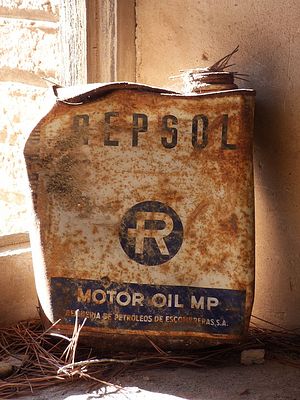In the first quarter of 2018, China successfully coerced a South China Sea claimant state and got away with it. The implications are serious and undermine ongoing efforts by the United States and its democratic partners to build a “free and open” Indo-Pacific.
In March, Vietnam’s state petroleum firm PetroVietnam withdrew its consent for Spanish energy firm Repsol to move ahead with a drilling project in the South China Sea. According to a report by Bill Hayton, a journalist and South China Sea analyst, the move could cost Repsol as much as US$200 million in sunk investment costs.
The Vietnamese decision was not made freely by the government. For months, China has been working to coerce the government of Vietnam and deprive it of the right to freely exploit its exclusive economic zone as should be its right under international law.
Last summer, in July, executives from Repsol said that China threatened to initiate a military conflict with Vietnam in the Spratly Islands if the Spanish firm moved ahead with its planned drilling activities in a separate oil drilling block. PetroVietnam’s decision in March followed similar coercion.
So far, several weeks out from the Vietnamese decision, China appears to have entirely got away with bullying a littoral South China Sea state from accessing its own hydrocarbon resources. The development underlines the ultimately shallow assurances the United States has been able to provide to regional states.
I’ve noted in these pages that under President Donald Trump, the United States has increased the operational tempo of its much-discussed freedom of navigation operations near disputed features in the South China Sea. Roughly, one operation takes place every two months instead of roughly every quarter under the Obama administration.
Meanwhile, the U.S. Navy has considerably expanded its presence in the South China Sea as well, sending a message to China that the United States is very much a Pacific power. In recent weeks, the USS Theodore Roosevelt carrier strike group conducted a rapid air wing sortie exercise to emphasise to the People’s Liberation Army Navy that its experience and capabilities in carrier aviation vastly outclass that of China’s lone carrier and its crew.
But for all this military activity and for all the rhetorical support from Washington and other democratic Asian capitals in recent months, none of these countries made any grievances known as Vietnam was deprived of access to its South China Sea resources under the threat of force.
Even as the USS Carl Vinson carrier strike group made its historic visit to Da Nang in March, Washington sat out this episode of Chinese coercion. It was in that same city in November where Trump delivered a highly anticipated speech outlining his vision for a “free and open Indo-Pacific”.
Relations between Vietnam and Washington have dramatically improved in the past five years, culminating in the complete lifting of the decades-old arms embargo in the Obama administration’s final year. But Vietnam, as one of the most forward-leaning claimant states in the South China Sea, now appears to be hung out to dry.
Instead of seizing on international law, including the July 2016 arbitration award by a Hague-based tribunal in the Philippines’ 2013 case against China, Hanoi simply had to accept the reality of its poor odds of prevailing in a military conflict with China.
When Vietnamese Prime Minister Nguyen Xuan Phuc visited Washington to meet Trump last year, the two leaders agreed to a statement that “noted with concern the destabilising impacts that unlawful restrictions to the freedom of the seas have on peace and prosperity in the Asia-Pacific region”.
Admiral Harry Harris, the outgoing commander of Pacific Command, recently described Vietnam as the United States’ “boldest regional partner in standing up to China’s provocative behaviour in the South China Sea”.
By failing to show up as Vietnam was coerced into a corner, Washington ultimately failed to live up to supporting the values that it claims to hold with regard to the future of the regional security architecture in Asia. The next time Chinese decision-makers seek to authorise the coercion of a Southeast Asian claimant state in the South China Sea, they’ll remember that.
This article first appeared at the South China Morning Post. It is republished here with kind permission.

































